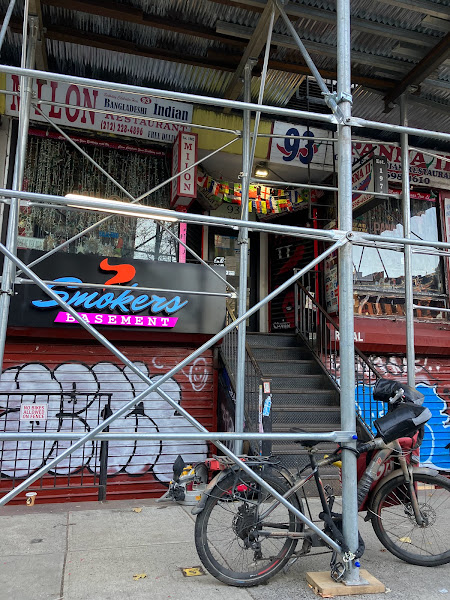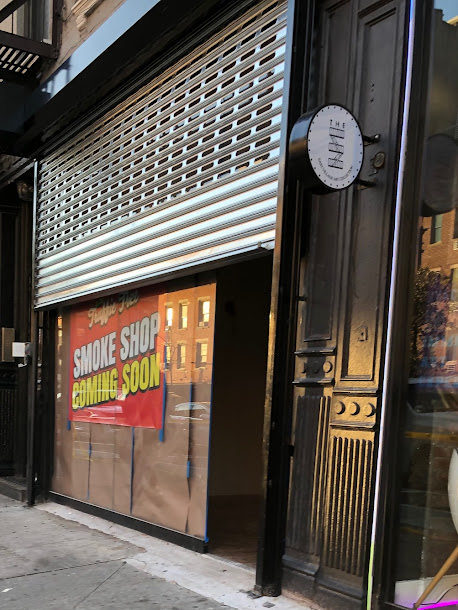The Housing Works Cannabis Co. store — New York's first legal recreational marijuana market —
opened to
great fanfare and long lines this past Thursday on Broadway at Eighth Street in a former Gap retail space.
So what might happen in the months ahead to the numerous unlicensed sellers who have popped up all over the East Village and every other city neighborhood?
[P]er New York's Office of Cannabis Management, the era of the weed bodega — the tacky, snack-filled corner-store purveyor, like the regular bodega's stoner cousin — is about to be over. Instead, the state's legal weed retailers will be subject to
an extremely long list of regulations that includes rules on everything from location to security to aesthetics.
The compliance requirements will undoubtedly be onerous and expensive for many of the operators vying for licenses, but the décor rules in particular seem designed to kill the gray-market upstarts that flooded the city in the beautiful, wild period between decriminalization and the rollout of official licenses.
It's as if regulators walked into a humble weed bodega — Cloudy Vibez, Weed 4 U, Kannabis Korner — and banned everything they saw: "cartoons," "bubble-type or other cartoon-like font," "bright colors," "neon," the terms "candy" or "candies," "kandy" or "kandeez," and "symbols, images, characters, public figures, phrases, toys, or games" commonly marketed to people under 21.
Also barred are signs or business names "depicting cannabis, cannabis products, or the imagery or action of smoking or vaping." As the city begins to enforce these rules in earnest, the welcoming visage of a rasta Alvin the Chipmunk will begin to disappear from our streetscape.
Meanwhile, the city is cracking down on the illegal shops ... not to mention the sidewalk vendors, as seen on St. Mark's Place between Second Avenue and Third Avenue.
This past Dec. 7, we received multiple EVG reader tips about busts underway at East Village shops (
photo below by Derek Berg) ...
As Gothamist reported, the Sheriff's Interagency Enforcement Task Force has been cracking down on the shops citywide.
Per the site:
The task force is led by the sheriff's office — the enforcement arm of the city's Department of Finance — and also includes the police department, the Department of Consumer and Worker Protection, and the state Office of Cannabis Management.
Mayor Eric Adams announced the creation of the task force in mid-December. In a two-week span, officials said at the time, the task force had inspected 53 storefronts across the city and seized more than 100,000 illegal products worth about $4 million. Officials also issued 500 civil violations and 66 criminal summonses over that time, Sheriff Anthony Miranda said.
All told, the city has conducted 248 store inspections, including 23 in December, through Dec. 29.
Another factor in the potential demise of the unlicensed shops: a survey (results here) conducted by the New York Medical Cannabis Industry Association found the presence of potentially deadly E. coli, salmonella and pesticides in many products from 20 unlicensed stores that publicly advertise selling marijuana, as Bloomberg reported.
As the Post noted, the study also found that there are "likely tens of thousands of illicit cannabis businesses currently out of bodegas, smoke shops, or other retail locations" that are licensed to sell other products.
So as the enforcement becomes stricter and the fines pile up, what will the owners of the unlicensed businesses do moving forward — especially if their shops, many looking like a set-piece from "
Bullet Train," don't meet the state's requirements? What kind of empty storefront surplus might be upon us in the months ahead if smoke shops don't open
in every vacant space?
Top photo from Dec. 29 by Steven































